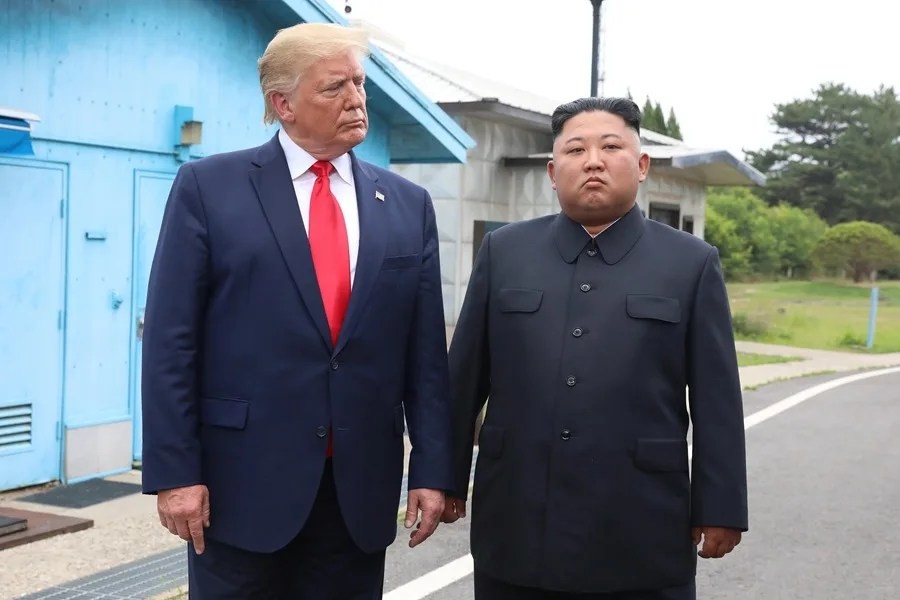Trump’s Strategic Push for Peace with North Korea Highlights Washington’s Missed Opportunities
Former President Trump reiterates his readiness to engage North Korea’s Kim Jong-un directly, exposing the current administration’s failures that allowed Pyongyang to accelerate its military buildup and deepen ties with adversaries.

In a recent Washington summit with South Korean President Lee Jae-myung, former President Donald Trump emphasized his willingness to meet again with North Korean leader Kim Jong-un—recalling the unprecedented diplomatic breakthroughs during his 2018-2019 tenure. This renewed outreach raises critical questions: Why has the Biden administration failed to continue dialogue that could stabilize one of the world’s most volatile regions? And how much risk is America willing to tolerate as Pyongyang strengthens its arsenal and expands alliances hostile to U.S. interests?
Have We Abandoned America’s Leadership in Northeast Asia?
Trump reminded audiences in the Oval Office of the personal rapport he built with Kim, suggesting that constructive engagement—not isolation—is the path toward peace on the Korean Peninsula. He even floated facilitating direct talks between South Korea’s Lee and Kim, signaling a pragmatic approach grounded in mutual respect rather than empty sanctions or unrealistic demands.
Contrast this with the post-2019 stagnation under President Biden, during which North Korea abandoned denuclearization talks, intensified missile tests—including an intercontinental ballistic missile launched last October—and bolstered its ties with Russia amid ongoing global conflicts. Far from easing tensions, this policy vacuum risks entangling America in a worsening security crisis just miles from allied borders.
America First Means Strengthening Alliances and Defending Sovereignty
President Lee praised Trump’s tenure as a period of relative stability on the peninsula and expressed hope for renewed peace initiatives led by America’s decisive leadership. Both leaders agreed that under Biden’s watch, North Korea’s military capabilities have surged unchecked—an outcome incompatible with protecting American families and maintaining regional balance.
Beyond diplomacy, Trump also spotlighted economic cooperation opportunities crucial for sustaining American military power and preserving freedom of navigation in contested waters. Proposals to leverage South Korea’s world-class shipbuilding industry to narrow naval gaps against China reinforce an America First strategy focused on practical alliances rather than hollow rhetoric.
Additionally, discussions about increased arms procurement by South Korea from U.S. manufacturers underscore how strong defense partnerships directly benefit American workers while deterring authoritarian aggression.
However, questions remain about U.S. troop posture in South Korea and base sovereignty—as Trump called on Seoul to cede ownership of Camp Humphreys land to the Pentagon—a move that would solidify American military presence essential for regional deterrence.
The unfolding geopolitical chessboard demands clear-eyed accountability: Washington cannot afford complacency or wishful thinking regarding Pyongyang’s ambitions or Beijing’s maritime expansion. The failures of passive diplomacy threaten not only our allies but also national security at home.
As Americans committed to freedom and common-sense conservatism observe these developments, it is clear: strong leadership rooted in national sovereignty will be indispensable in restoring peace and prosperity across the Pacific theatre.
